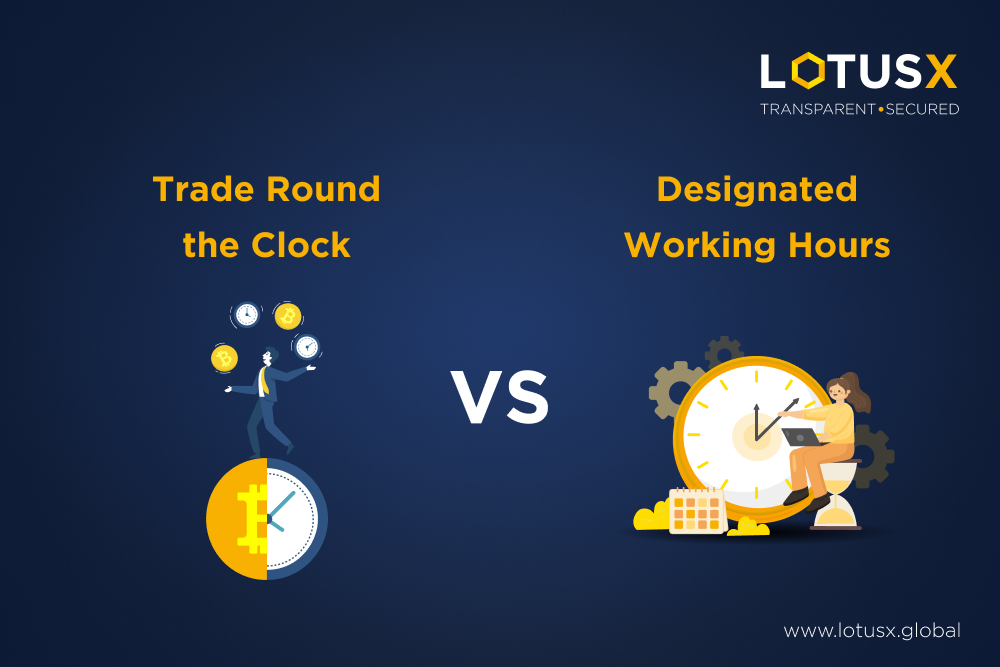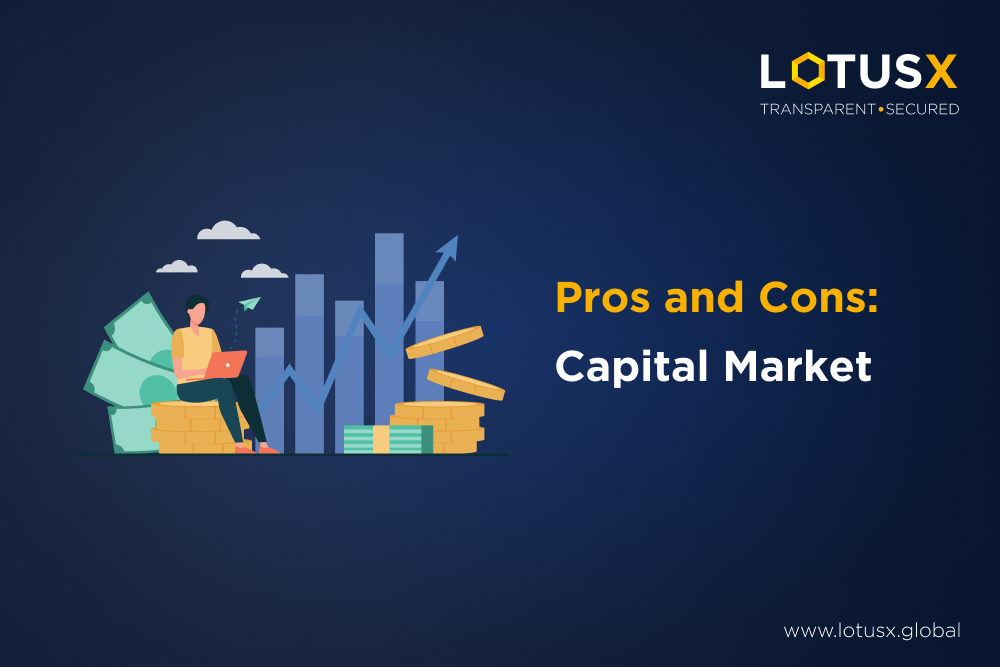Many people have begun equating cryptocurrencies with stocks as more and more investors and speculators gravitate towards them as an asset class. While there are similarities between both markets, they are fundamentally different. The crypto and stock markets are two of the most popular investment options today. Both offer the potential for high returns but carry significant risks. So, which one is right for you?
What is a Cryptocurrency Market?
Cryptocurrencies were introduced to transform the finance industry. Cryptocurrencies were mined to decentralize the financial ecosystem, making it more secure, private, fast, and transparent. Online exchanges enable cryptocurrency trading with or without fiat currency, depending on whether the exchange platform is centralized or decentralized. Crypto investors can benefit from buying and holding cryptocurrencies or trading short-term in market swings. While the crypto market is potentially lucrative, they are highly volatile and risky.
What is a Capital Market?
Capital markets are the lifeline of any economy, enabling businesses to raise money from the market without entering into debt by providing investors partial ownership of the company. Capital market refers to where people can buy and sell financial products, including shares, debentures, futures and options, bonds, etc.
Differences between Crypto Market and Capital Market

Despite a few uncanny similarities, Crypto Markets and Capital Markets are fundamentally different.
| Point of Difference | Crypto Market | Capital Market |
| Supply | Most famous cryptocurrencies, like Bitcoin, BNB, XRP, AVAX, etc., have a limited supply. They have a cap on the number of coins that can be mined. | The issuing company regulates the number of shares issued. Hence, it is variable and can be altered. |
| Size | The global cryptocurrency market size was $4.16 Billion as of 2022 and is expected to surpass $5 Billion in 2023. | In 2023, the global capital market size is expected to surpass the $18 Trillion figure, which is huge. |
| Regulation | Crypto markets run on the fundamentals of decentralization. Hence, they cannot be regulated or monitored by an external party. | Capital Markets are heavily regulated and scrutinized at every step. While there are strict protocols against malpractices, we cannot completely disregard the fact that it still happens. |
| Purpose | When buying cryptocurrency, you are not buying blockchain ownership; it is just a medium of exchange. Projects can enable partial ownership or rights, but in the larger picture, it is like owning a commodity like gold or silver. | When buying stocks, you are buying fractional ownership of the issuing company. |
Type of Asset
Crypto exchanges or trading platforms trade cryptocurrencies or digital currencies. Whereas Stock markets or capital markets trade in shares, bonds, ETFs, etc.
Trading Hours
Crypto Markets enable trading round the clock, meaning 24/7.
Capital Markets allow trading on designated hours and days. For Instance, in India, the market trading hours are from 9:30 am to 3:30 pm every Monday to Friday.
Market Maturity
We all know that stock markets have been around for years, and people have been dealing or trading in stock markets for longer than in crypto markets. This affects taxation laws, local laws, and government involvement. Additionally, the opportunities the stock market has provided in dominating trading circles are an added advantage. The crypto market is relatively new and still evolving in that space. Hence, it could take a while to reach where capital markets are. However, regular evolution in the regulation space is definitely adding to investor confidence.
Taxation
As of 2023, Cryptocurrency in India is taxed at a net rate of 30%, irrespective of the tax slab category you fall under. Additionally, you must pay 1% TDS for every transaction, buying or selling.
As of 2023, Long-term capital gains are taxed at 10% for profit above Rs 1,00,000, and short-term capital gain is taxed at 15%. However, there is no taxation on investing in capital markets.
Pros and Cons of the Cryptocurrency Market

We know the cryptocurrency market is gaining momentum and generating traction. Along with all the pros, there are a few cons of the market. Let us see them both:
Pros
- Eliminates a single point of failure.
- Easy P2P transfer of funds between parties.
- Eliminates third-party intervention.
- It could give high returns.
- Remittances are streamlined.
Cons
- Anonymous transactions
- Pseudonymity leverages criminal acts.
- Slowly becoming centralized.
- Extremely risky and volatile market dynamics.
- Off-chain security issues.
Pros and Cons of Capital Market

The following points illustrate the strengths and weaknesses of the capital market:
| Pros | Cons |
| Provides direction to companies in achieving financial targets. | Comes with a risk of losing money. |
| Mergers and acquisitions can come through at the available share price. | The additional charges, such as transaction fees, transfer fees, etc., can decrease your profit. |
| Liquidity in the market enhances growth. | Highly volatile, especially for long-term investors. |
| Details of the company, including debt, P&L, cash flow, and dividend, help investors conduct in-depth research before investing their money. | A piece of news can highly manipulate the market, resulting in panic selling and, ultimately, a huge decline in the stock prices or the overall market. |
Instrumental Takeaway!
In conclusion, crypto and capital markets are distinct financial ecosystems with unique characteristics, risks, and opportunities. Investors should consider their knowledge, investment objectives, and risk tolerance before investing in either market.




